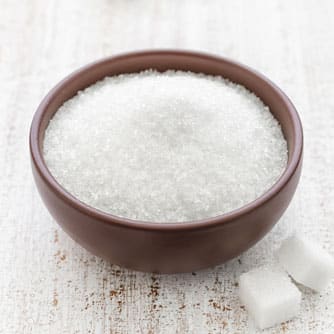Sources of added sugar in the diet include sugar-sweetened beverages, grain-based desserts, fruit drinks, dairy desserts and candy. The American Heart Association sets a limit for added sugars at 100 calories per day for women and 150 calories per day for men. Quanhe Yang, from the US Centers for Disease Control & Prevention (CDC; Georgia, USA), and colleagues examined data collected from the National Health & Nutrition Examination Survey (NHANES) III, involving over 31,000 subjects. The team found that adults received an average of 16% of their calories from added sugars between 1988 and 1994. That increased to about 17% between 1999 and 2004, but fell to about 15% between 2005 and 2010. During the 2005 to 2010 span, about 71% of U.S. adults were getting 10% or more of their calories from added sugars. About 10% were getting at least 25% of their calories from added sugars. The researchers also looked at data on 11,733 people enrolled in the NHANES III Linked Mortality study, who were asked about their diets in the early study years and were tracked through 2006. Over about 15 years, 831 died of cardiovascular diseases. The subjects who received between 10 and 25% of their calories from added sugar were 30% more likely to die of cardiovascular disease during that time, as Compared to people who received less than 10% of their daily calories from added sugar. Those who received 25% or more of their calories from added sugar were more than twice as likely to die of cardiovascular disease. Observing that: “Most US adults consume more added sugar than is recommended for a healthy diet,” the study authors warn that: “We observed a significant relationship between added sugar consumption and increased risk for [cardiovascular disease] mortality.”
Sweet Warning
Quanhe Yang; Zefeng Zhang; Edward W. Gregg; W. Dana Flanders; Robert Merritt; Frank B. Hu. “Added Sugar Intake and Cardiovascular Diseases Mortality Among US Adults.” JAMA Intern Med., February 3, 2014.
RELATED ARTICLES




